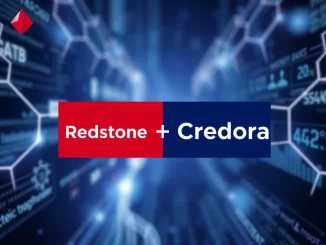
The decentralized finance (DeFi) world has been rocked once again, as Arcadia Finance, a protocol operating on the burgeoning Base network, has fallen victim to a significant DeFi hack. This incident serves as a stark reminder of the inherent risks and constant vigilance required in the crypto space. With losses estimated at approximately $3.5 million, this exploit underscores the critical importance of robust crypto security measures for both protocols and individual users.
The Unfolding Disaster: What Happened to Arcadia Finance?
The news of the Arcadia Finance exploit sent ripples through the DeFi community when it was initially flagged on July 15. According to blockchain security firm Certik, the total losses mounted to a staggering $3.5 million. The initial breach involved the theft of around $1.6 million, stemming from a critical flaw within its rebalancer contract. This particular vulnerability allowed attackers to drain funds, leaving users and the protocol reeling.
Following the discovery, the immediate advice for users was clear and urgent: revoke permissions and disconnect any rebalancers from their accounts. This precautionary step is crucial in preventing further unauthorized access to user funds, highlighting the proactive measures users must take in the wake of such incidents.
Why the Base Network is Under Scrutiny
The incident on Base network is particularly noteworthy given its recent growth and increasing adoption. As a Layer 2 scaling solution built by Coinbase, Base has attracted significant liquidity and numerous DeFi projects. However, with rapid expansion often comes increased scrutiny and, unfortunately, a larger attack surface for malicious actors.
Exploits on emerging networks like Base can erode trust and slow down adoption, as potential users and developers become wary of the security landscape. While the exploit was specific to Arcadia Finance’s contract, it casts a shadow over the broader ecosystem, emphasizing the shared responsibility of all participants to uphold the highest security standards.
Unpacking the Protocol Vulnerability
At the heart of the Arcadia Finance incident was a critical protocol vulnerability within its rebalancer contract. But what exactly does that mean, and how do such vulnerabilities lead to millions in losses?
- Rebalancer Contracts: In DeFi, rebalancer contracts are often used by yield farming protocols to automatically adjust asset allocations within a user’s portfolio or liquidity pool to optimize returns or maintain specific ratios. They typically have permissions to interact with user funds to perform these rebalancing operations.
-
The Exploit Mechanism: While specific details of the exploit’s mechanics are still being fully dissected by security researchers, such vulnerabilities often arise from:
- Logic Errors: Flaws in the smart contract code that allow attackers to bypass intended restrictions or manipulate calculations.
- Access Control Issues: Improperly secured functions that allow unauthorized users to execute privileged operations.
- Flash Loan Attacks: Using uncollateralized flash loans to manipulate prices or liquidity within the same transaction, exploiting oracle or liquidity pool vulnerabilities.
- The Impact: In Arcadia Finance’s case, the vulnerability allowed the attacker to drain funds that were under the management of these rebalancer contracts, demonstrating how a single flaw can have catastrophic financial consequences.
Bolstering Your Crypto Security: Actionable Steps for Users
In the wake of incidents like the Arcadia Finance hack, it’s natural for users to feel a sense of unease. However, there are concrete steps you can take to significantly enhance your personal crypto security and protect your assets in the volatile DeFi landscape:
- Revoke Permissions Regularly: This is perhaps the most crucial immediate action. Many DeFi protocols require you to grant spending permissions (approvals) for your tokens. Tools like Etherscan’s Token Approvals page (and similar tools for other chains like Base) allow you to view and revoke these permissions. Make it a habit to review and revoke unnecessary or outdated approvals.
- Do Your Own Research (DYOR): Before interacting with any DeFi protocol, especially newer ones on networks like Base, thoroughly research its team, its audit reports (from reputable firms like Certik, PeckShield, etc.), and its community sentiment. Look for red flags like unaudited contracts, anonymous teams, or unusually high, unsustainable yields.
- Use Hardware Wallets: For storing significant amounts of crypto, hardware wallets (like Ledger or Trezor) offer superior security by keeping your private keys offline, making them impervious to online hacks.
- Be Wary of Phishing and Scams: Always double-check URLs, avoid clicking suspicious links, and be skeptical of unsolicited messages or offers. Scammers often impersonate legitimate projects or support staff.
- Understand the Risks: DeFi is an innovative but high-risk environment. Understand that even audited protocols can have undiscovered vulnerabilities. Only invest what you can afford to lose.
The Ripple Effect: Lessons from Another DeFi Hack
The DeFi hack on Arcadia Finance is not an isolated incident but rather another chapter in the ongoing saga of security challenges in decentralized finance. Each exploit, while damaging, offers invaluable lessons for the entire ecosystem. It highlights the constant cat-and-mouse game between protocol developers striving for innovation and malicious actors seeking vulnerabilities.
For the broader Base network and the DeFi space as a whole, this incident reinforces the need for:
- Continuous Auditing: Regular, rigorous security audits, even after initial deployment, are essential. As protocols evolve, new vulnerabilities can be introduced.
- Bug Bounty Programs: Encouraging ethical hackers to find and report vulnerabilities before malicious actors do can significantly strengthen security postures.
- Community Vigilance: An active and informed community can often spot suspicious activity or potential flaws, acting as an early warning system.
Ultimately, the goal is to build a more resilient and secure DeFi ecosystem where innovation can thrive without constantly being overshadowed by the threat of exploits. The protocol vulnerability exposed in Arcadia Finance serves as a harsh reminder that security must always be paramount.
The Arcadia Finance exploit on the Base network is a sobering reminder of the persistent threats lurking in the DeFi landscape. The $3.5 million loss underscores the critical need for robust crypto security measures and a deeper understanding of potential protocol vulnerability. While the decentralized nature of DeFi offers immense promise, it also places a greater onus on users to exercise caution and actively manage their digital assets. As the industry matures, collaborative efforts between security firms, developers, and users will be vital in fortifying the defenses against future DeFi hack attempts, ensuring a safer and more sustainable future for decentralized finance.
Frequently Asked Questions (FAQs)
Q1: What is Arcadia Finance?
Arcadia Finance is a decentralized finance (DeFi) protocol that operates on the Base network, designed to offer various financial services, often involving yield optimization or asset management within the DeFi ecosystem.
Q2: What happened in the Arcadia Finance exploit?
Arcadia Finance suffered a hack that resulted in approximately $3.5 million in losses. The exploit specifically targeted a vulnerability within its rebalancer contract, allowing the attacker to drain funds.
Q3: What is the Base network?
Base is a Layer 2 scaling solution for Ethereum, developed by Coinbase. It aims to provide a secure, low-cost, and developer-friendly environment for building decentralized applications, including DeFi protocols.
Q4: How can users protect themselves from protocol vulnerability exploits like this?
Users can enhance their crypto security by regularly revoking token permissions, using hardware wallets for significant holdings, conducting thorough research (DYOR) on protocols, being vigilant against phishing scams, and understanding the inherent risks of DeFi.
Q5: What is a rebalancer contract in DeFi?
A rebalancer contract in DeFi is a smart contract designed to automatically adjust the composition of a user’s asset portfolio or liquidity pool. It helps maintain specific asset ratios or optimize yields by automatically buying or selling assets as market conditions change.
Q6: Who is Certik and what was their role?
Certik is a prominent blockchain security firm specializing in auditing smart contracts and blockchain protocols. In the Arcadia Finance exploit, Certik was among the first to flag the incident and provide initial estimates of the losses incurred due to the hack.



